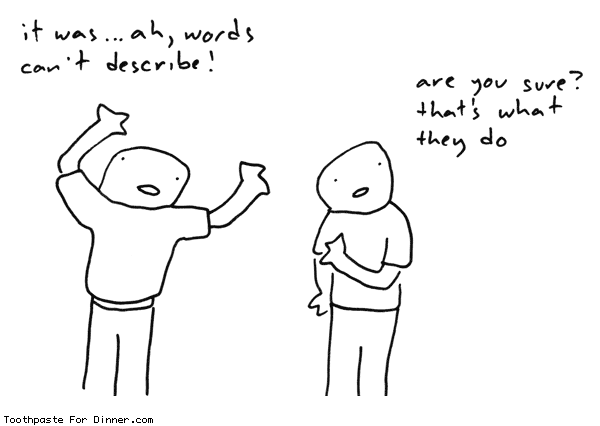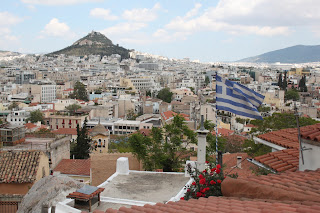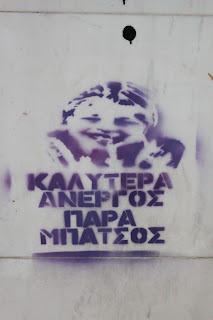We met the Secretary-General of the Department for Gender Equality of the Greek Parliament in Athens, bright and early. The Sec-Gen was in fact the former president of the Center for Gender Studies at Panteion University, which we visited the day before but didn't get much information because the woman who welcomed us was in charge of administration. They seem to be doing lots of interesting work though, organising conferences with guest lecturers like Judith Butler (!) and film screenings of 'Frida' and 'Boys Don't Cry'.
Anyway, at the Department of Gender Equality we were welcomed by three women and and one (gay) man. I'm sorry to see the dearth of heterosexual men in this department (possibly because most Greek men are Spartans). But they somehow managed to mainstream gender throughout the government, so at least de jure women are taken into account. Although I'm not so much concerned with parity in numbers as with social attitudes.
They started a helpline for female victims of domestic violence, and they say it's doing well. But someone asked well, what about migrant women victims? They don't dare to go to the police because they are afraid they will be deported for their undocumented (illegal) status. So even when violence happens (and with undocumented migrant men too), they keep quiet or deal with it on their own.
Immigration is framed as a 'problem' to be solved, because "these people coming, they don't have jobs, and we don't know how Greece can accept them". Never mind that they come to do all the dirty informal jobs that 'native Greek' people don't want to do.
I found this pamphlet in the office for the prevention of tuberculosis (TB). The pamphlet does not say that immigrants are bringing in TB explicitly, but the head of iRED had explicitly mentioned that immigrants bring in diseases that have already been eradicated in Greece. But let's take a look at the cover:
A dark-skinned man of indeterminate ethnic origin smiling, and the words 'Tuberculosis' - we associate foreigners with the disease.
And the inside:
A dark-skinned woman of indeterminate ethnic origin with a head covering, sitting in a dark, dirty-looking room - the idea of foreigners (and possibly, gasp, Muslims foreigners) bringing disease because of their filthy lifestyle.
Images of 'modern science', the answer to curing TB. And science, especially medical science, can be used to justify many actions.
Conclusion: TB is brought into Greece by immigrants. Stop immigration and therefore, stop TB, the disease of the developing world and outdated times.
The ironic part about finding this pamphlet was that the Sec-Gen was very insistent on the importance of the media in reproducing gender norms and had programmes and prizes to promote gender-fair advertising. But intersectionality was forgotten, so they ended up reproducing other unjust structures.



















